As Cities Suspend Shutoffs, Water Access and Hygiene at Front of Coronavirus Response
Governments, water utilities brace for coronavirus impacts.
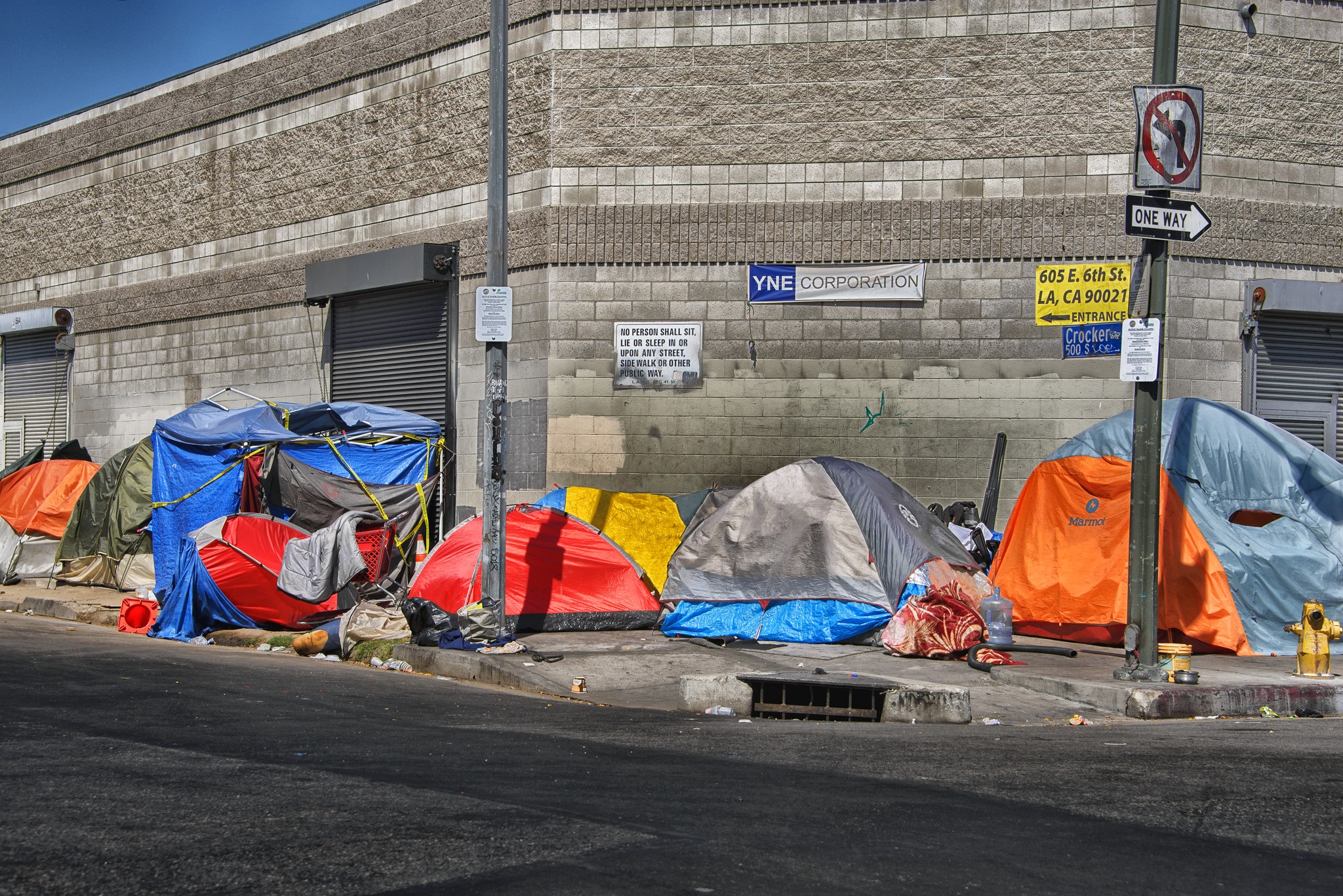
Tents line the sidewalks of the Skid Row area near downtown Los Angeles. Due to the coronavirus, cities are installing additional handwashing stations in areas with a large number of residents experiencing homelessness. Photo courtesy of Flickr/Creative Commons user Russ Loar
By Brett Walton, Circle of Blue
Governments at all levels are beginning to review water access policies and inequalities that inhibit public and personal efforts to slow the spread of coronavirus.
Those policies include restoring water service to homes where water had been disconnected, suspending new water shutoffs, and installing public handwashing stations to serve residents who are experiencing homelessness.
As of Friday morning, some three dozen U.S. cities — including Atlanta, Cincinnati, Detroit, and Houston — said they would not shut off water service during the coronavirus outbreak, according to a tally from Food and Water Watch, an advocacy group.
“As we all work to curb the spread of COVID 19, it is important that all properties have access to water for handwashing, personal hygiene, and cleaning,” wrote Lyda Krewson, mayor of St. Louis, in a letter to the director of public utilities. Krewson ordered water shutoffs to be suspended until May 15.
With no vaccine yet available to counteract the coronavirus, governments are relying on hygiene and quarantines to battle what is now a global pandemic. The first U.S. case was identified on January 21 near Seattle.
“One of the challenges with this, is that there’s no specific treatment and there’s no vaccine for this virus,” said Jonathan Yoder, who leads water preparedness and response at the Centers for Disease Control and Prevention. “That’s why the public health efforts at this time are focused on containing the spread of the virus and mitigating the impact of that virus.”
But what is hygiene without water?
The movement to suspend water shutoffs gained momentum earlier this week when Michigan Gov. Gretchen Whitmer joined the mayor of Detroit and the head of the city’s water department to announce a plan to reconnect water service to households whose water had been shut off because of overdue bills.
The Detroit Water and Sewerage Department turned off water to 11,801 customers in four months last year, between April and July, according to department records. About half of those had water service restored in that time period.
Detroit residents without water can now pay $25 to restore water service and $25 a month to keep their water running for the duration of the coronavirus outbreak. The state of Michigan will pick up the tab for the first 30 days. After that, residents will be responsible for payments.
The response in Michigan led two Democrats in Congress to call on other cities to follow suit, which they now appear to be doing.
“Access to clean water is a basic human right at all times, but any action that restricts families’ access to water during the current coronavirus outbreak would be reckless in the extreme,” said Reps. Peter DeFazio, of Oregon, and Frank Pallone, of New Jersey.
Flexibility in utility operations may soon extend to bill payments in general. With restaurants closing and workers being laid off, the pandemic is having economic repercussions that are just beginning to reverberate.
The Los Angeles Department of Water and Power said that it will offer extended payment plans to households experiencing financial hardship.
Concern about unsanitary conditions extends to city streets.
Metropolitan areas with large numbers of people experiencing homelessness are starting to provide additional handwashing stations, hand sanitizer, and public toilets.
In San Francisco, Mayor London Breed announced a $5 million initiative that targets the most vulnerable populations, in part by deploying more handwashing stations.
In Los Angeles, City Council member Mike Bonin used his office’s funds to position some 40 handwashing stations across his district on the western edge of the city, Curbed LA reports.
In Canada, there are longstanding inequalities in drinking water access that need to be overcome for the coronavirus response to be effective, said Michelle Driedger, a professor in the department of community health sciences at the University of Manitoba.
“There are communities that have boil-water advisories, that don’t have running water,” Driedger told Circle of Blue. “What needs to be done is to help them to practice the first line of defense, which is hand washing.”
Driedger said that for these communities there are both psychological and physical barriers. Because water quality has been bad for so many years, residents might not trust their tap water even for hand washing and bathing. Some areas, Driedger added, do not have the physical infrastructure such as grocery stores and supply chains for the market to provide handwashing alternatives like alcohol-based sanitizers.
Brett writes about agriculture, energy, infrastructure, and the politics and economics of water in the United States. He also writes the Federal Water Tap, Circle of Blue’s weekly digest of U.S. government water news. He is the winner of two Society of Environmental Journalists reporting awards, one of the top honors in American environmental journalism: first place for explanatory reporting for a series on septic system pollution in the United States(2016) and third place for beat reporting in a small market (2014). He received the Sierra Club’s Distinguished Service Award in 2018. Brett lives in Seattle, where he hikes the mountains and bakes pies. Contact Brett Walton

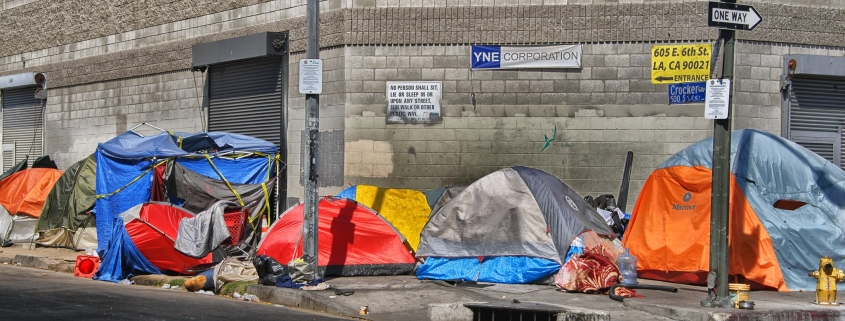

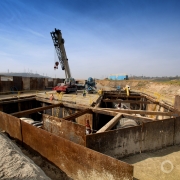
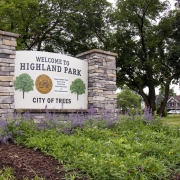

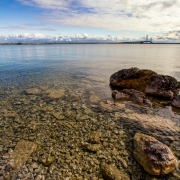

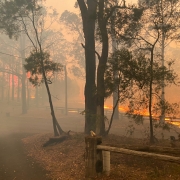



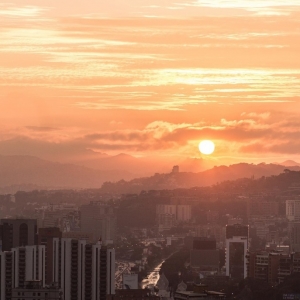
Leave a Reply
Want to join the discussion?Feel free to contribute!